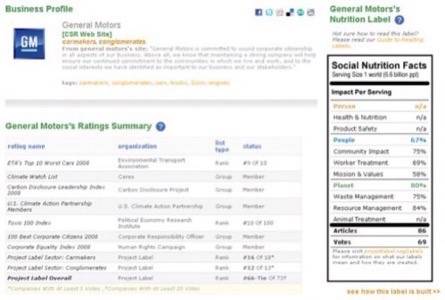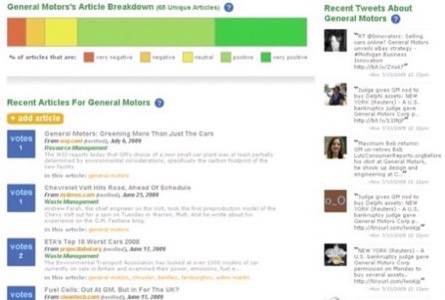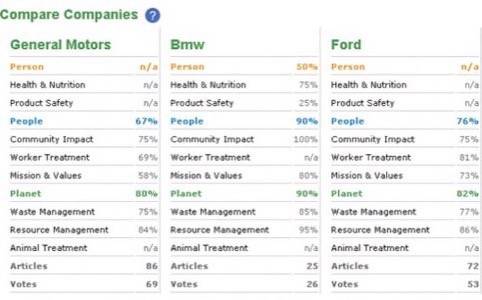Corporate social responsibilty has been all the rage – among consumers, at least – for a good long minute already. And a rash of new sites are competing to offer scoring mechanisms for companies.

Last week, we reviewed Scryve, a CSR site that combined user feedback along with researched data in a wiki-like system. Today, we’re taking a look at Project Label, a site with a quite different approach and a novel presentation.
The site gives each corporation a label much like those you’d see on most packaged foods (at least in the States). The folks at Project Label feel this will lead to more “comparison shopping” and, with any luck, more socially responsible corporations.
According to their site, “As with food nutrition labels, social nutrition labels will motivate consumers to learn about social issues in order to make more informed decisions when choosing between product A and product B. The result will be a high demand for socially nutritious products, and thus a greater supply.”

Project Label gathers the data to create these labels from consumers, businesses, and organizations, all of which can contribute, comment on, and vote on articles and research items. Data is parsed for information on topics ranging from product safety and worker treatment to resource management and overall impact on the community. Articles referenced for these scores are included in each company’s profile, along with recent tweets, a general barometer of the tone of sentiments expressed, ratings from a variet of organizations, and a group of related companies for comparison.


The site also allows users to see a transparent breakdown of how each label was created based on available information.
The articles and data are also viewable on their own, independent of a company’s profile. They can be sorted by topic, date, overall sentiment, and number of user votes; and they can be searched by keyword.
The folks at Project Label plan to bring custom reports into their stable of offerings, as well. We don’t know yet if a portable/embeddable widget is in the works, but it might be a good idea to make such a tool available to users.
Of course, as with any young site with a primary offering reliant on UGC, Project Label will need a core group of dedicated users who really, really care about CSR to build out the site’s content enough to make it a valuable resource – and one that ranks high for natural search.





















